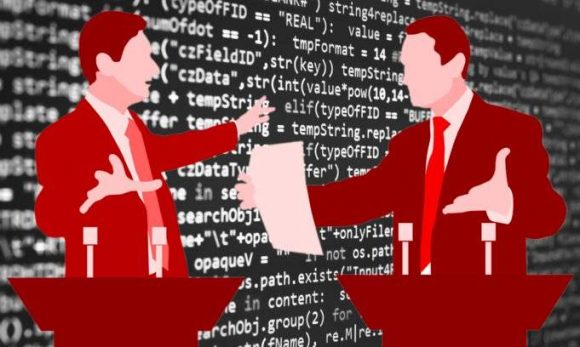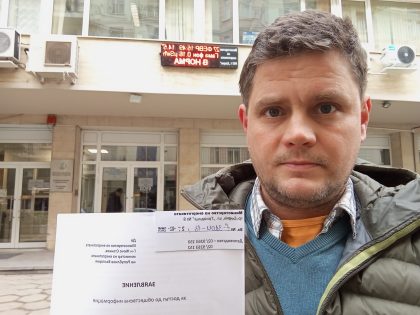By Tanya Todorova*
In the digital age, social media is increasingly shaping the people’s approach to the real world and our way of discussing, but how secure are these platforms for our mental health and who benefits most from all this? Do we realize how our brain is deceived by a psychological phenomenon known as „The Mere Exposure Effect„? Why is the world becoming a more insecure place and how can we remove the real cause of this process?
Gallup’s Global Emotions report in 2017 indicated that levels of insecurity were now at the highest in a decade. Levels of sadness, anger, worry, and physical pain had all reached ten-year peaks. Gallup speculated about a variety of reasons, but could this trend be partly a result of the people we are electing as our political leaders and more precisely from the sets of their personal traits?
Let’s dive in and look what social media is producing and what their algorithms are based on. Scientists have provided some evidence that exposure to the screen time and social media increases depression, anxiety and suicide. According to the report from the Royal Society of Public Health 63% of users of Instagram are unhappy. In the United States from 2010 to 2015, teen suicide rates (13-18 years) have increased by 31% and today, in England, suicide is the leading cause of death among young people. Social media is operating as a conditional tool and has been constructed in a way which spreads pathological envy. In short, aggression has been placed into the social media algorithm and in some cases, this has been weaponized. In social media we are constantly exposed to negative territory where negative messaging is rewarded, which has the inevitable effect of poisoning the thought patterns of its users. The consequences are that our minds start to change – neuroplasticity guarantees that. Chamath Palihapitiya, Founder, CEO Social Capital and former Facebook executives, warned about the unintended consequences of social media at Stanford Graduate School of Business: „I think we have created tools that are ripping apart the social fabric of how society works. The short-term, dopamine-driven feedback loops we’ve created are destroying how society works. No civil discourse, no cooperation; misinformation, mistruth. You are being programmed“
From this point of view, we can say that social media is the most antisocial tool ever invented. People with aggressive tendencies and antisocial behavior will find them as a perfect place where they can enhance the level of toxicity. There is a special group of people that will take a lot of benefits form them: psychopaths, sociopaths and narcissist. Personality traits of these people are: lack of empathy, entitlement, grandiosity, superficiality, anger, rage, arrogance, and shallow emotion. These are a manifestation of pathological insecurity – an insecurity that is experienced at both the individual and societal level. Unfortunately, nowadays our society values these patterns – and venerates them through social media, mainstream media, and consumerism. Our current system rewards and admires successful people without making them accountable for the means and tools with which they achieved this success.
The above-mentioned characteristics are endemic in political, corporate, academic and media leaders, but as they are successful, we leave them unpunished and grant them permission to replicate these abusive patterns to achieve more success. But with the invasion of social media in our daily life another threat comes that actually hacks the base of direct democracy. Social media allows everybody to broadcast and become familiar to a large audience. Psychologists know that our brain is led and misled by familiarity. In 1965 Zajonc performed an experiment which demonstrated the Mere Exposure Effect. He showed participants symbols and pictures and asked them to rate how much they liked them. Then he showed them again and again and had the participants rank the images a large number of times. He discovered that people had a strong preference for the pictures, symbols, and faces they had already seen. If participants had seen an image before, they were more likely to feel positive about it on the second viewing. Zajonc found this to be the case up to about the 20th viewing, after which the effect tails away.
Familiarity breeds affection — and that’s rapidly becoming problematic for democracy.
How will the Mere Exposure Effect affect politics? When faced with a choice between an anonymous someone or a TV celebrity, who are people going to pick? A logical choice would be to choose the most competent candidate, but many people go with the person they’re most familiar with.
When we create a world where psychopathy and narcissism become necessary to succeed, we undercut the core of our humanity – mutuality, respect, compassion, patience, genuineness, honesty and trust. We need to set up new metrics for success – authenticity, compassion, kindness, and empathy. We are collectively responsible to change the current system and push back people who rule by abuse, fear and vindictiveness.
Psychologists have already developed and validated tests with which we can measure political skills and personality traits to everyone who wants to become politician. Change can begin by starting to use these to pre-screen people who want to be elected. For example, their psychological profile could be made freely available as part of the election process. It’s time to get our world back and anyone can participate actively in this by launching and supporting initiatives which would obligate political parties to test their members with personality tests.
––––––––––––––––––––––
* The same article was published for the first time in Italian: Un algoritmo per selezionare i leader politici
.







